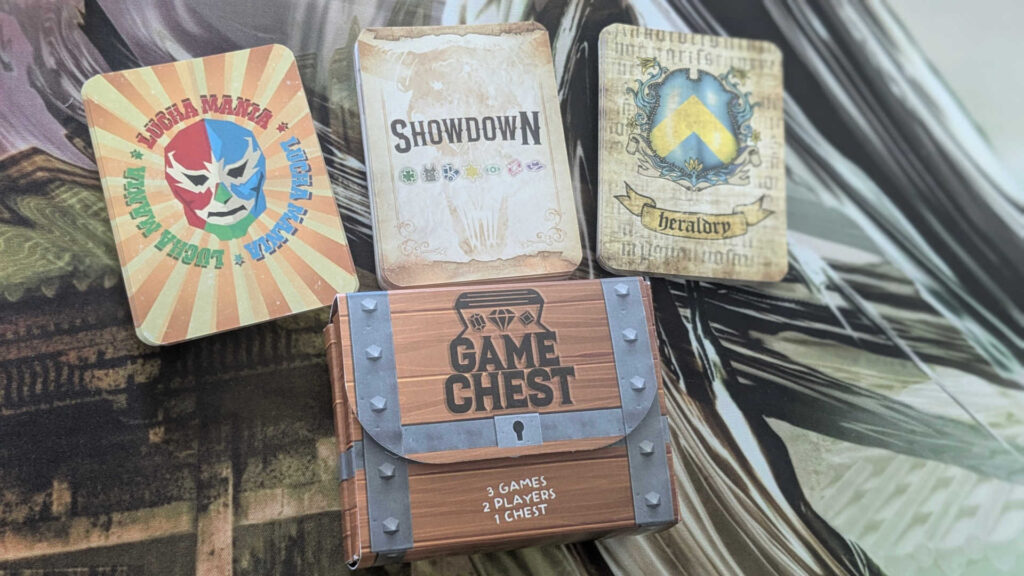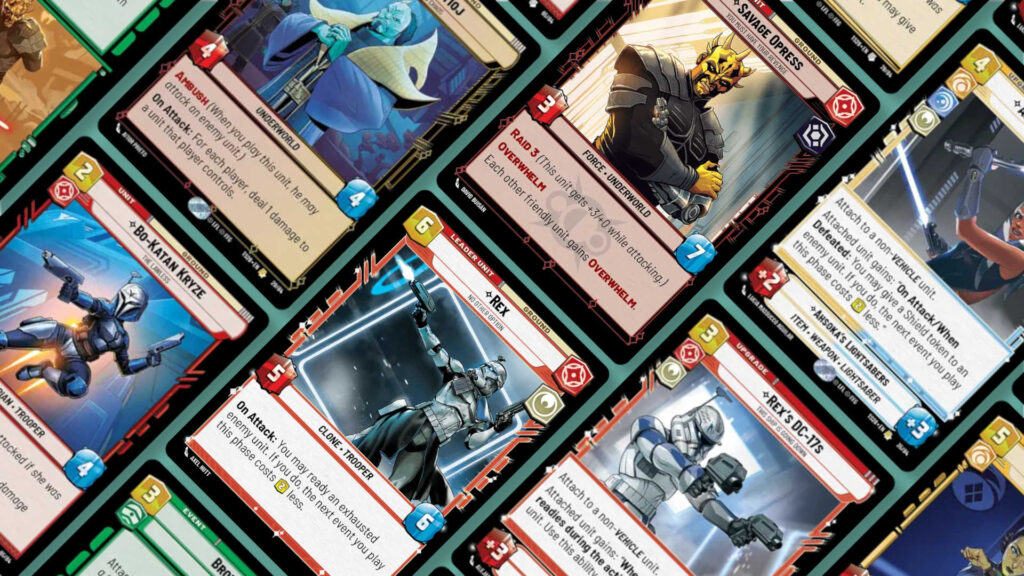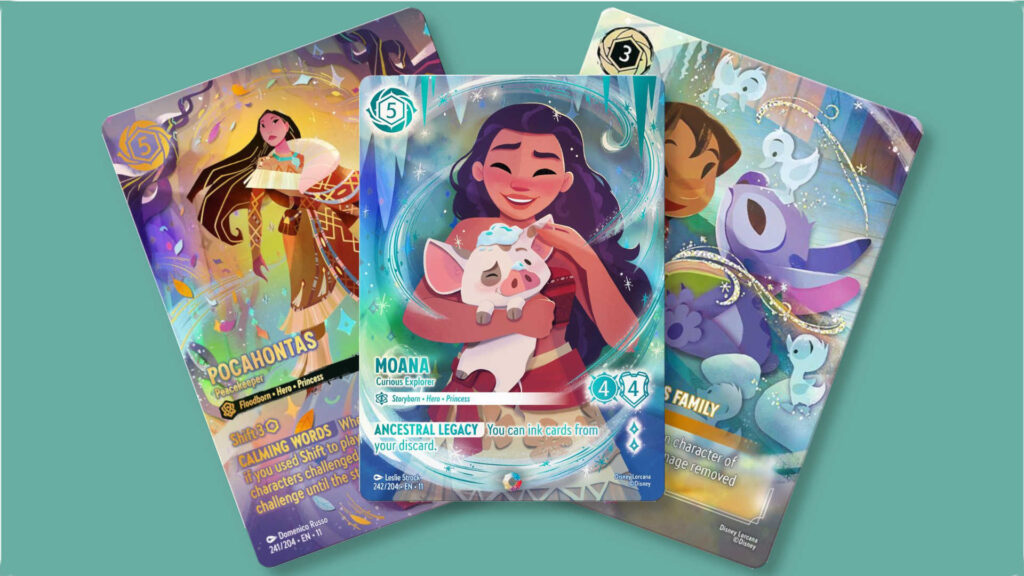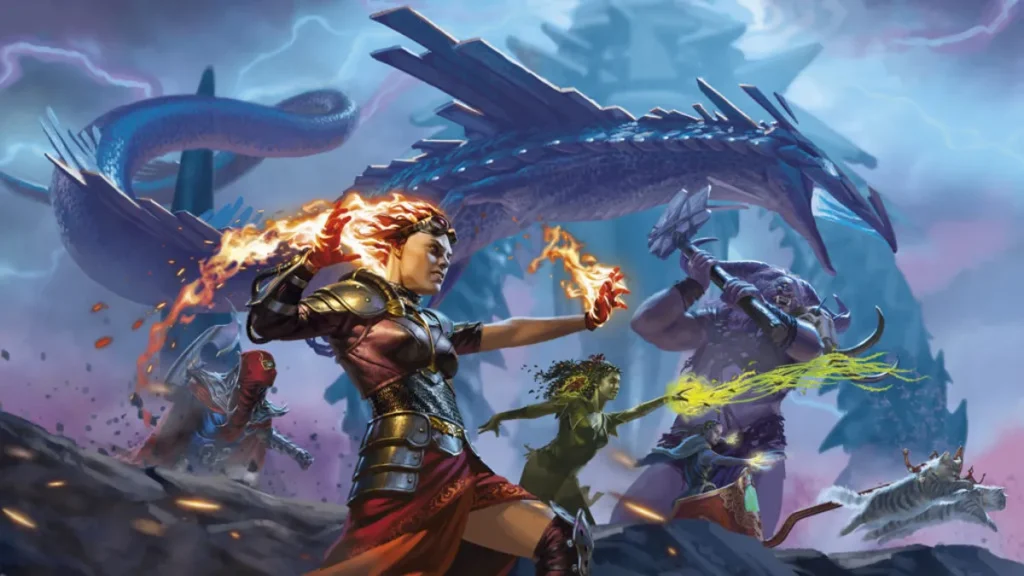We’ve seen plenty of titles which feature multi-use components, and therefore multiple games using shared elements, but The Game Chest does something different; that is, it features three different games, but each uses a bespoke deck of cards for a vastly different theme and experience. Are the three games The Game Chest contains worth playing? Let’s find out!
Table of Contents
ToggleWhat Three Games Are Included in The Game Chest?
The decks of cards included in The Game Chest allow you to play the following games: Lucha Mania, Showdown and Heraldry. Every game of the three is a fast playing, 2 player title based around a very different main mechanic, so let’s check out each one in turn.
What is Lucha Mania?
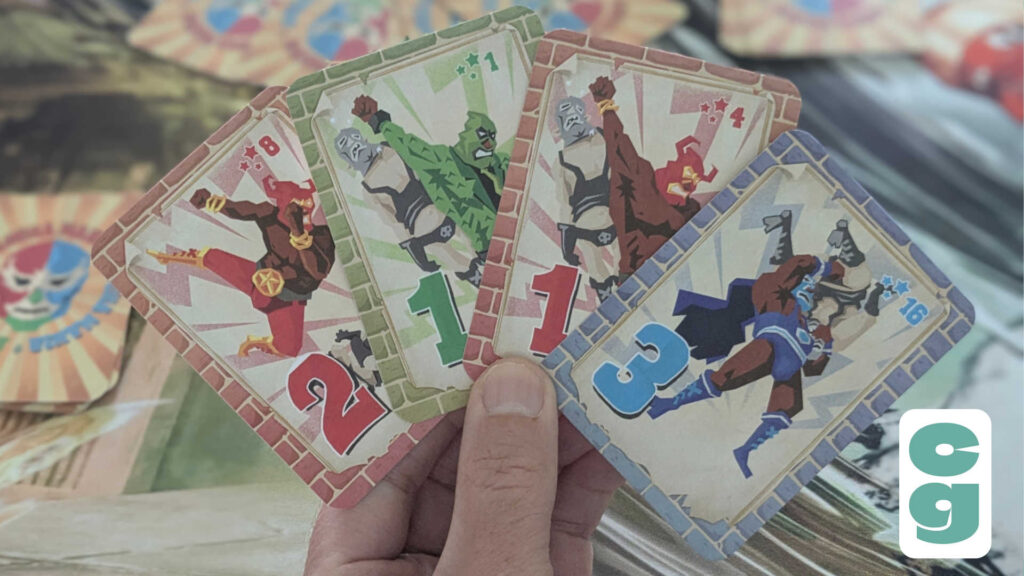
A wrestling themed card game in which players must play the best poker hand each turn, Lucha Mania features colorful Luchadors and perhaps the most straightforward gameplay of all three of the games in The Game Chest. Players have a hand of four cards and choose three to make a hand with, then reveal those three at the same time as their opponent while shouting “Lucha!” Interestingly, players are allowed, before playing their three cards, to secretly look at the top card of their draw deck, to give them insight as to what hand they can try playing after the current one is resolved.
The player with the best poker hand of the two (a Straight Flush, which is three sequential numbers in the same color, is the best, and a pair of the same number is the lowest poker hand when it comes to scoring) wins, and their opponent chooses which of their cards is placed in the score pile. They’ll tend to pick the card with the highest star rating, as these are used to break ties; if a card is in the score pile, it remains out of circulation for the rest of the game. The loser of the hand removes the card of their own choice from their played hand, then both players take the remaining cards and draw back up to 4 cards in their hands. Play continues until a player has won three cards, and they are then declared the victor.
What is Showdown?
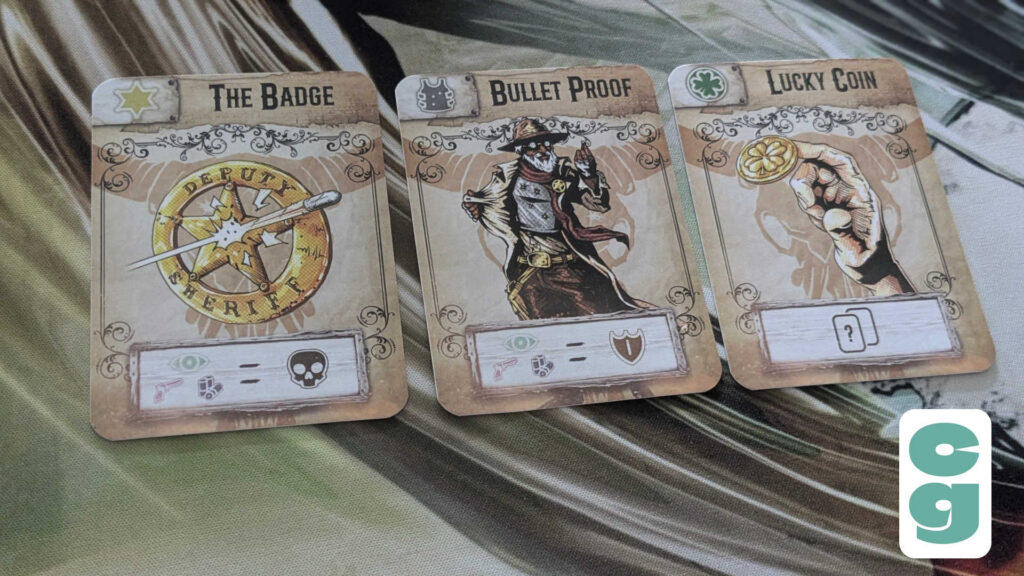
We move on from wrestling Luchadors to a shootout in the Wild West, in Showdown. Players have a hand of six cards each, and take shots at each other with their cards; instead of being poker-based, like Lucha Mania, Showdown has a rock-paper-scissors style mechanic.
There are numerous cards, each of which is effective against at least one other card, except for Lucky Coin, which can be replaced with a random face down card to be used against the other player.
Cards either attack or block, but can only do so if their card is shown to attack or block successfully against the symbol on the opposing player’s played card. Bluffing and counter-bluffing is the order of the day in Showdown, which is another fast paced, two player card game which can end surprisingly quickly; though players have 7 health and lose 1 point per hit, the rapid pace of the game means it often doesn’t take long to reduce an opponent to zero health points and win the game.
What is Heraldry?
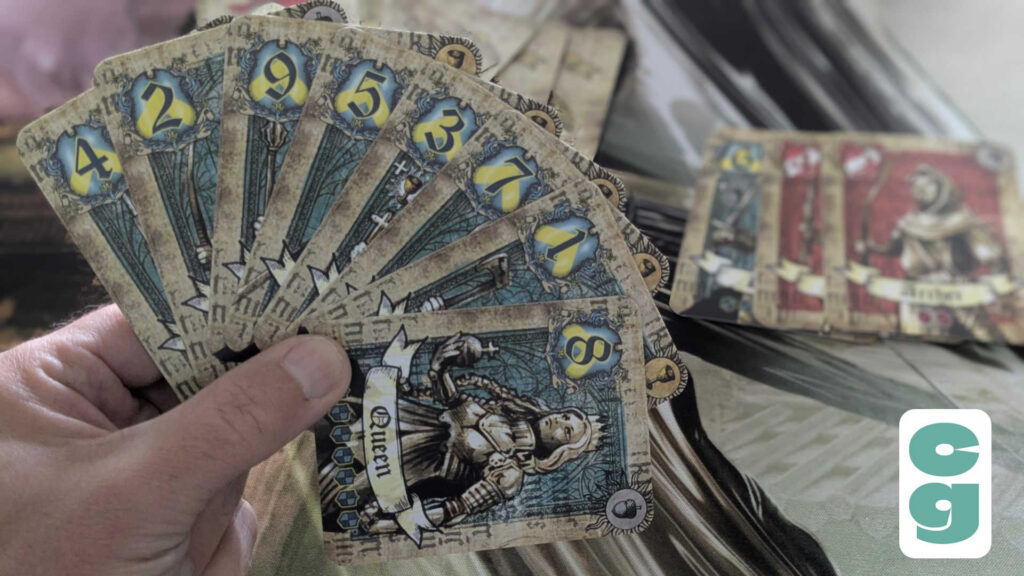
Each player chooses a deck in Heraldry, with the only difference being that the cards are either red or blue. The decks each contain cards numbered from 1-9, and both players will begin the game with all of these cards in their hand.
This means that you know exactly what cards your opponent has at any given time, making Heraldry a more strategic affair than the previous two games, in which luck can play a factor in the outcome. In Heraldry, players are trying to banish cards belonging to their opponents, which adds a card to their opponent’s score pile. At the end of the game, the player with the lowest points total in their score pile wins.
Each turn, players will play a card to the central row, with the option to either play a card that’s higher than the one they’re playing on top of (known as the base card), a card with a value 1 less than the base card, or two cards which match the number of the base card.
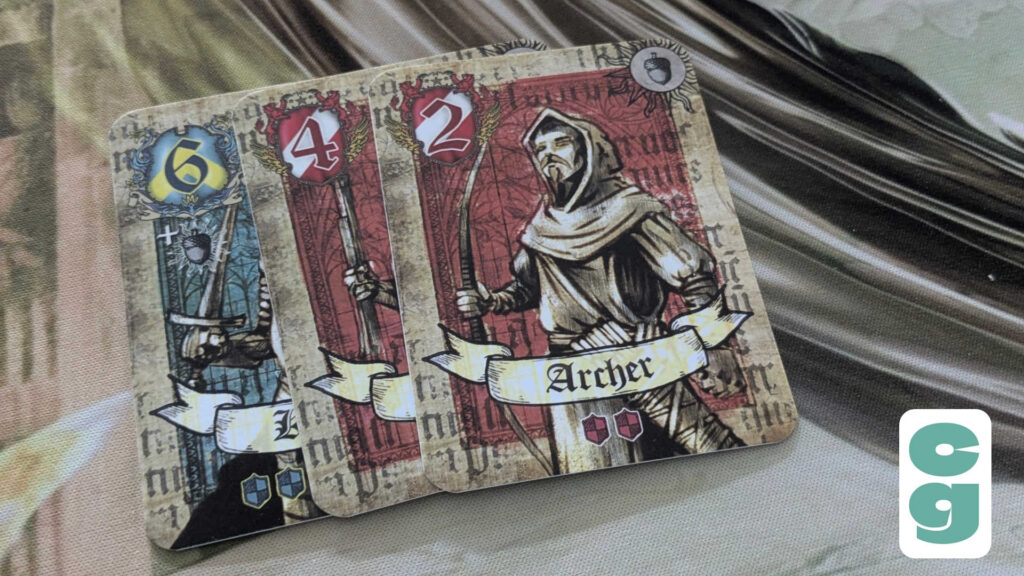
If the latter option is chosen, and two cards are played, this results in the base card being banished, and its owner taking it into their score pile; see the example above, with the 4 and 2 played by the red player banishing the blue 6, which is the base card. Regardless of what happens, the rightmost card is the new base card (if you do play 2 to banish a card, you choose which order you lay them in). Again using the above example, the 2 would be the new base card to continue play.
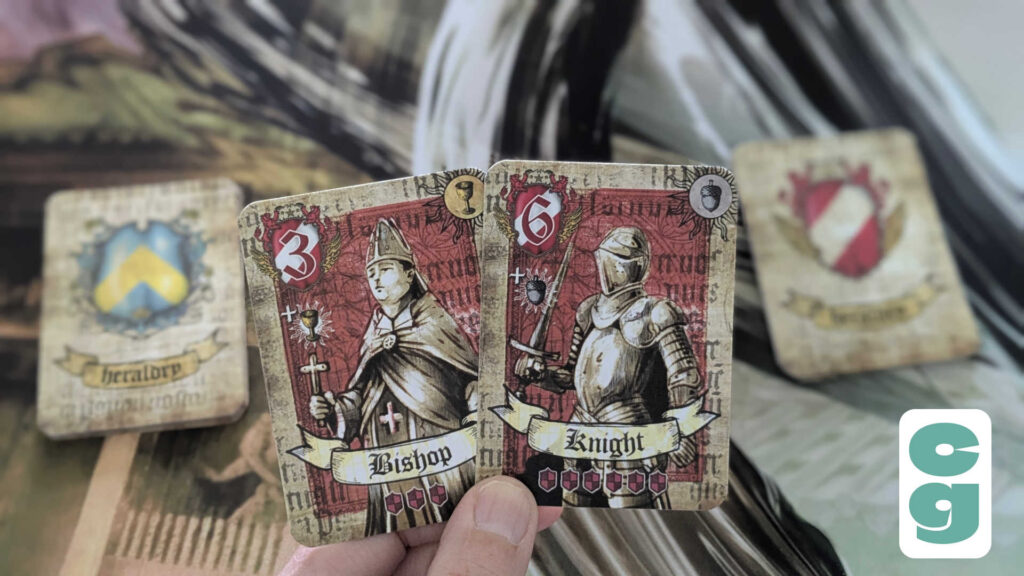
Two cards in each deck, the 3 and the 6 (Bishop and Knight respectively) allow you to play a second card immediately, though this doesn’t count as banishment. The Bishop allows you to play any other card with a gold chalice symbol (odd cards) and the Knight allows you to play another even card (marked with the silver acorn). Play continues until either player can’t play any more cards from their hand, and the player with the lowest scoring banished card total, according the the numbers on the cards, wins.
Is The Game Chest Fun to Play?
You get plenty of bang for your buck with The Game Chest, which packs a surprisingly varied set of games into its tiny, pocket-sized box (and yes, I tried; I was able to fit the full chest of three games in my pocket!). It’s very cleverly designed as an overall, physical package, and each game is easy to learn, teach and play.
Each game’s duration is around the 5-10 minute mark, making them perfect for bite-sized gaming sessions. Though they’re all primarily designed for 2 players, it’s possible to play 3-4 player variants if you have 2 copies of The Game Chest (check out the Pocket Fox Games website for the rules of these variants).
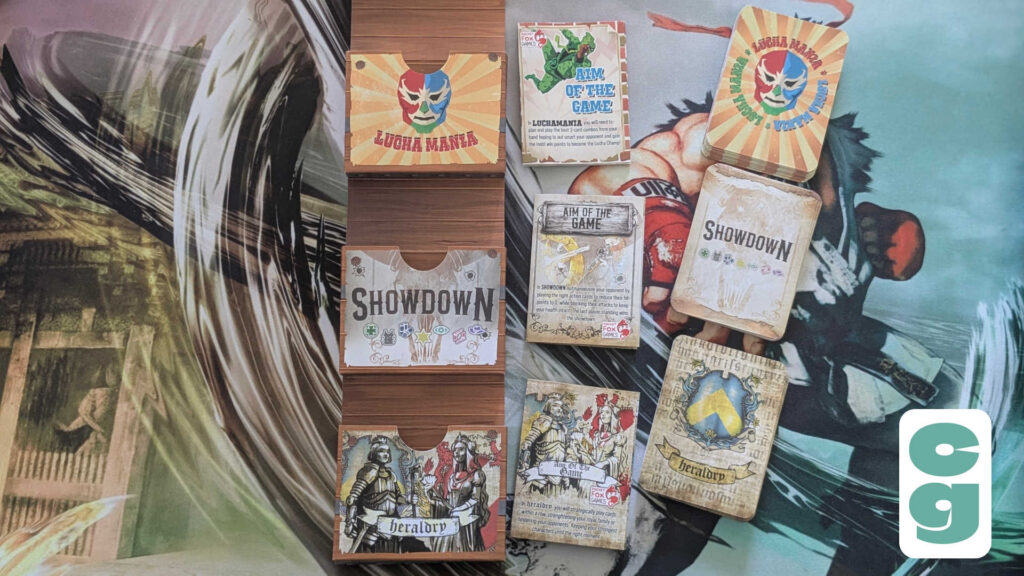
The rules themselves are easy to digest, but their simplicity does result in a few instances where a bit of clarification would be useful on certain rules, which did trip us up a bit while learning. There are really helpful, and brief, tutorial videos with the creators of the games on the Pocket Fox Games website, however, and these really do help to make things a lot clearer.
We enjoyed all of the games in The Game Chest, with each having their own strengths and weaknesses. Lucha Mania felt like it could be subject to the luck of the draw at times, for example, though its fast pace and the ability to look ahead to the next card works in its favor. Showdown felt pretty thematic, though again did feel as if it could be a bit too luck based at times (though the bluffing is well implemented!).
Finally, Heraldry, being the slowest paced and most tactical of the three games, felt like the most satisfying title to play, even though it’s perhaps the most abstract in terms of its theme.
The Card Gamer Verdict
Each game in The Game Chest feels unique, and they’re all light, easy to play games which just about anyone, of any age or experience level, can pick up and have fun with.
It’s a very impressively designed box, not just from a gameplay perspective but also just as a neat physical object, which also helps to save space, the eternal bugbear of long-term tabletop gamers!
Lucha Mania and Showdown can feel a little luck based and light, but this does at least mean that even inexperienced players can have a chance at success. Heraldry is likely to be the gamer’s choice in The Game Chest, but for the price of the overall package (note that you can also purchase the games separately if you choose), and the value it represents, it’s hard to complain too much.
Interested in other small, family friendly card games? Check out our reviews of Ninjan and Super Meow!


